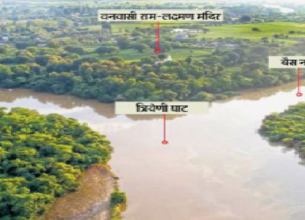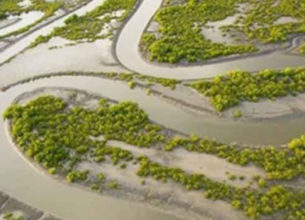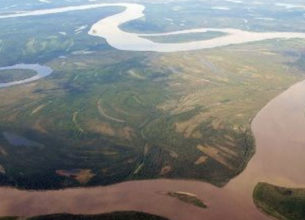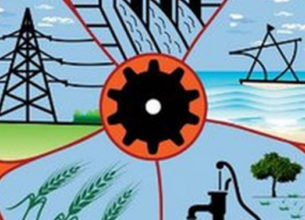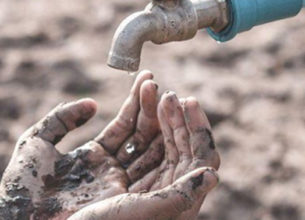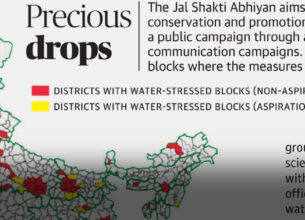Two SC Judges pull out of Krishna Water Case
11, Jan 2022
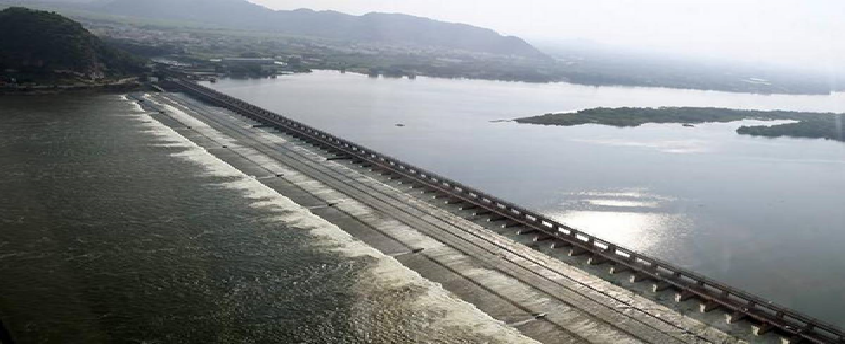
Prelims level : Rivers
Mains level : GS-II Functions and Responsibilities of the Union and the States, issues and Challenges Pertaining to the federal structure, devolution of powers and finances up to local levels and challenges therein
Why in News?
- Both Justices D.Y. Chandrachud and A.S. Bopanna of the Supreme Court recently recused from hearing a dispute among the neighbouring States of Telangana, Andhra Pradesh and Karnataka on the allocation of Krishna River Water.
About the Krishna Water Dispute:
- Karnataka has sought the vacation of a November 16, 2011 of the Supreme Court which stopped the Centre from publishing in the Official Gazette the final order of the Krishna Water Disputes Tribunal II (KWDT) pronounced in December 2010, allocating the river water to Karnataka, erstwhile Andhra Pradesh and Maharashtra.
- The KWDT had further modified its final order and report on November 29, 2013 to allot surplus water to Karnataka, Maharashtra and the erstwhile State of Andhra Pradesh while preserving the allocation of 2130 TMC already made amongst them.
- However, following the bifurcation of Andhra Pradesh, its successors Telangana and Andhra Pradesh had moved the Supreme Court challenging the KWDT’s allocation of shares.
- Karnataka has argued that the dispute raised by Andhra Pradesh and Telangana was between them and did not concern it.
- The State said the decision of the KWDT was enforceable only till 2050, after which it has to reviewed or revised. Ten years have already lapsed in litigation since 2010.
- Karnataka required at least 10 years to complete several irrigation projects whose costs were pegged at ₹60,000 crore in 2014-15.
- The costs would escalate annually by 10% to 15%. Even if the irrigation projects are completed in 10 years, the Central Water Commission clearances would take time.
- The life of the KWDT award is 40 years, out of which 10 years have already lapsed and 10 years is required to complete the work. As a result, Karnataka will not be in a position to utilise water 20 out of 40 years.
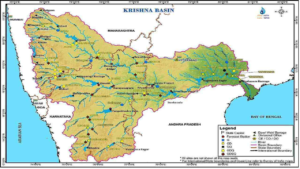
About Inter-State River Water Disputes:
- Article 262 of the Constitution provides for the adjudication of inter-state water disputes.
- Under this, Parliament may by law provide for the adjudication of any dispute or complaint with respect to the use, distribution and control of waters of any inter-state river and river valley.
- Parliament may also provide that neither the Supreme Court nor any other court is to exercise jurisdiction in respect of any such dispute or complaint.
- The Parliament has enacted the two laws, the River Boards Act (1956) and the Inter-State Water Disputes Act (1956).
- The River Boards Act provides for the establishment of river boards by the Central government for the regulation and development of inter-state river and river valleys.
- A River Board is established on the request of state governments concerned to advise them.
- The Inter-State Water Disputes Act empowers the Central government to set up an ad hoc tribunal for the adjudication of a dispute between two or more states in relation to the waters of an inter-state river or River Valley.
- The decision of the tribunal is final and binding on the parties to the dispute.
- Neither the Supreme Court nor any other court is to have jurisdiction in respect of any water dispute which may be referred to such a tribunal under this Act.
About Krishna River:
- Source: It originates near Mahabaleshwar (Satara) in Maharashtra. It is the second biggest river in peninsular India after the Godavari River.
- Drainage: It runs from four states Maharashtra (303 km), North Karnataka (480 km) and the rest of its 1300 km journey in Telangana and Andhra Pradesh before it empties into the Bay of Bengal.
- Tributaries: Tungabhadra, Mallaprabha, Koyna, Bhima, Ghataprabha, Yerla, Warna, Dindi, Musi and Dudhganga.



